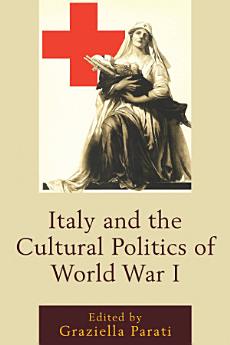Italy and the Cultural Politics of World War I
Graziella Parati
Sep 2016 · Bloomsbury Publishing USA
Ebook
182
Pages
reportRatings and reviews aren’t verified Learn More
About this ebook
Italy and the Cultural Politics of World War I dialogues with the variety of texts recently published to commemorate the Great War. It explores Italian socialist pacifism, the role of women during the conflict and a dominant cultural movement, Futurism, whose leader, Filippo Tommaso Marinetti, glorified war and enlisted in the fight. Other soldiers created documents about the war that differ from the heroic and virile endeavor that Marinetti placed at the center of his works on war. Italy and the Cultural Politics of World War I pays attention to the representations of the soldiers through an analysis of their letters, dominated by descriptions of the terrible hunger they suffered. In contrast, popular film absorbed the cultural lessons in Marinetti's writings and represented soldiers as modernist heroes in comedies and dramas. However, film did not shy away from representing cowards who could only be baffoons and fools in propaganda films. In another medium, the concern was to publish texts that would serve the fighting soldier and inform readers about ideological and historical motivations for the conflict. The publishing industry supported national propaganda efforts. Only socialism could endanger anti-war publication, but after its initial opposition to the conflict, socialists occupied a neutral position. Italian socialism still remained the only European socialist party that did not renege its pacifism in order to embrace nationalism and the war, but it was also not in favor of actions that would sabotage in the Italian war industry. ltalian socialism is only one feature of Italian culture that was dramatically changed during the war. WWI impacted every aspect of Italian and of European cultures. For instance, as an essay in Italy and the Cultural Politics of World War I explores, the war industry needed workers. The solution was to bring Chinese men France to contribute in the war effort. After the war, they moved to other countries and in Milan, Italy, they founded one of the oldest Chinatowns in Europe, dramatically changing the human landscape of Italy as they later moved to other Italian cities. Italy and the Cultural Politics of World War I supplies essential research articles to the construction of an inclusive portrayal of WWI and Italian culture by deepening our understanding of the transformative role it played in 20th century Italy and Europe.
About the author
Graziella Parati is the Paul D. Paganucci Professor of Italian Literature and Language and professor in the Comparative Literature and Women's and Gender Studies Programs at Dartmouth College.
Rate this ebook
Tell us what you think.
Reading information
Smartphones and tablets
Install the Google Play Books app for Android and iPad/iPhone. It syncs automatically with your account and allows you to read online or offline wherever you are.
Laptops and computers
You can listen to audiobooks purchased on Google Play using your computer's web browser.
eReaders and other devices
To read on e-ink devices like Kobo eReaders, you'll need to download a file and transfer it to your device. Follow the detailed Help Center instructions to transfer the files to supported eReaders.







